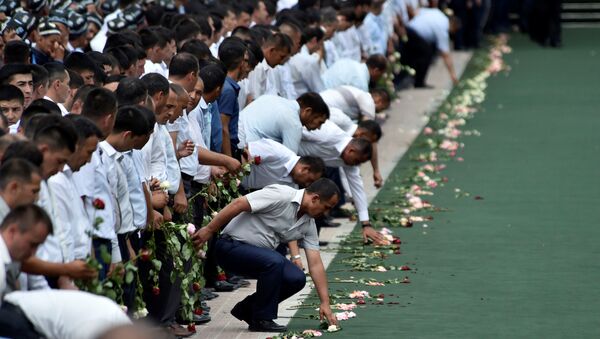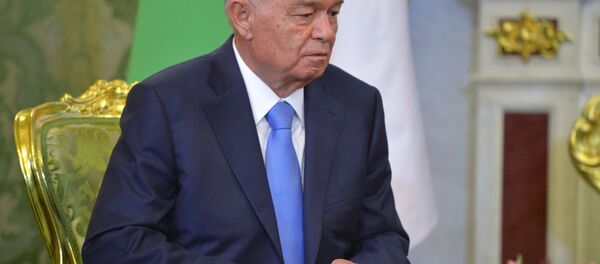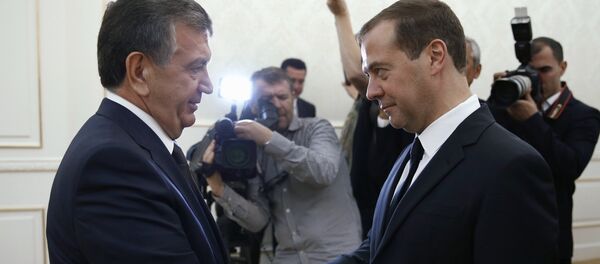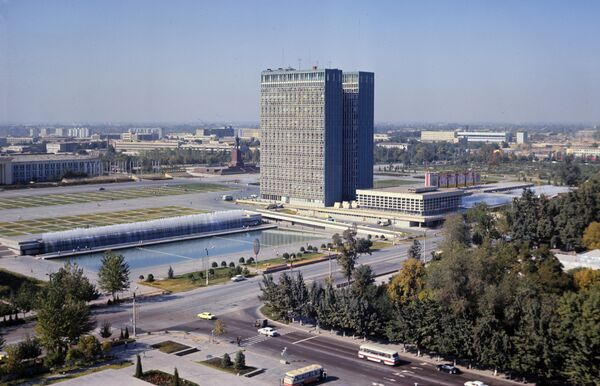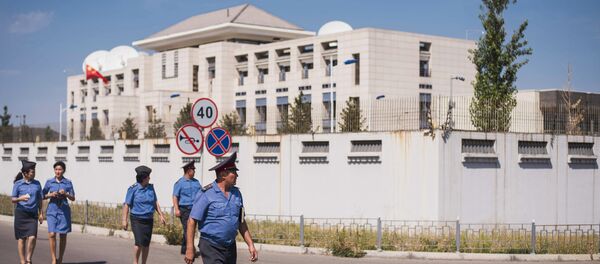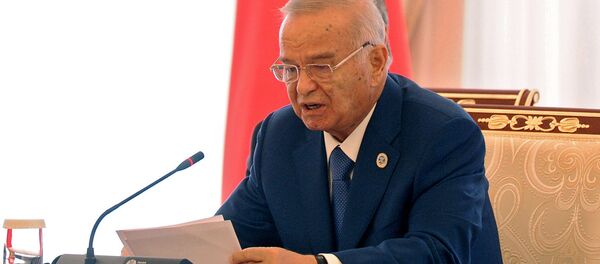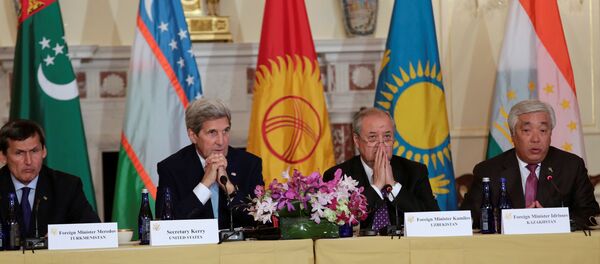Karimov, who began his political career when Uzbekistan was still part of the Soviet Union, officially became Uzbekistan's first president in September 1991, ruling the Soviet republic, and then country, for 27 years. Russian commentators have mixed emotions on the leader's political legacy.
"Throughout Karimov's reign, the entirety of the country's opposition has been either in prison or abroad…Only the laziest human rights activists have not commented on human rights violations in the country. The apotheosis of such violations, according to them, was authorities' shooting into a demonstration in May 2005 in the city of Andijan, which killed 187 people according to official statistics, and several times more, according to unofficial ones."
But neither was Karimov a villain, Mirzayan emphasized. The Andijan demonstration, organized by the Islamic Movement of Uzbekistan (a radical group now officially affiliated with Daesh) has been described by Tashkent as a successful effort to prevent a color revolution from breaking out in the country.
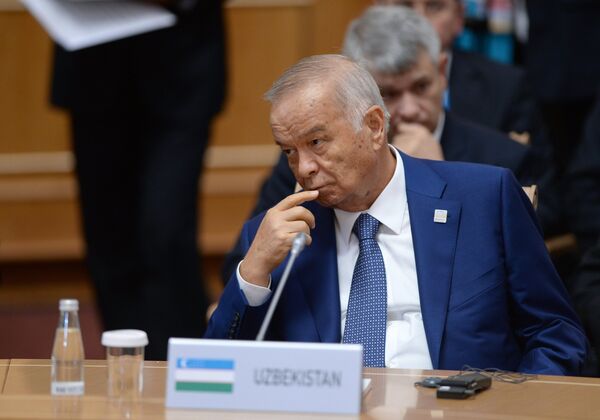
Karimov managed "to keep the country together under extremely difficult circumstances. His actions had perfectly rational reasons, in line with the kind of logic used throughout the region. The uprising in Andijan was by no means a pacifist march to petition the sultan. Rioters had taken over a prison, killed security officials, seized weapons and took hostages. In essence, what was at stake was an Uzbek version of Maidan, whose consequences for the country would have been very sad, and possibly catastrophic."
The Uzbek president, Mirzayan recalled, "fought the radicals in an uncompromising fashion, and did not allow Uzbekistan to become a breeding ground for terrorists. And in this respect, of course, he was an effective partner for Russia."
As far as Karimov's successor is concerned, Russian observers have mentioned several possible candidates, including Prime Minister Shavkat Mirziyoyev, Deputy Prime Minister Rustam Azimov, Rustam Inoyatov, the powerful head of the security service, and even Karimov's daughter, Lola Karimova-Tillyaeva. Under the country's constitution, the country must now hold elections in a maximum of three months to select a new president, with Parliament Speaker Nigmatilla Yuldashev formally charged with filling the void until then.
For his part, Mirzayan believes that a successor has already been chosen behind the scenes. "From this perspective, the name of the new Sultan is not so important." During Karimov's time in office, the political system was effectively fine-tuned for reaching compromise in the event of the leader's death. "Within the three month timeout, [the elite] can come to an agreement on who the new president will be."
Another option, of course, may be to elect a figurehead leader, which is a common practice in the region, the analyst recalled.
"Whatever option is chosen by Karimov's confidants, it will be accompanied by consensus within the elite (and perhaps the effort to create this consensus helps explain the delay in the announcement on Karimov's incapacitation and death)."
"Of course, security officials and apparatchiks may come to blows among themselves, with the clever among them using Islamist groups for the internal struggle. However, everyone is also perfectly aware that doing so would undermine the main pillar of their own legitimacy – the stability for the sake of which the country's population is ready to tolerate an authoritarian government."
Whoever is picked to become the new president, Mirzayan is convinced that he or she will be forced to initiate serious reforms in both domestic and foreign policy, the former aimed at reducing the threat of radical Islam, the latter at normalizing relations with Uzbekistan's neighbors – Tajikistan and Kyrgyzstan. Ties with these countries had been ruined by personal political animosities, by historical conflicts and issues surrounding water resources.
As far as global strategy is concerned, Uzbekistan's old strategy of strict isolationism, including reliance on domestic resources and non-participation in multilateral international negotiations, and the refusal to delegate even a small degree of sovereignty to supranational structures, may no longer be applicable in the current situation in the region, according to Mirzayan.
"And here possible risks arise. The activities of the new authorities, whether or not they take to reforms, or attempt to preserve the system as is, will be subject to influence from external forces. And while some will be ready to assist the Uzbek leadership in overcoming difficulties, others are interested in Tashkent being knocked down" and thrown into chaos.
In Mirzayan's estimation, the quartet of Russia, China, the US and Saudi Arabia are presently the main foreign players in the region. Among them, Moscow "has the strongest interest in the country, and the most interest in seeing the succession occur without any turmoil." For Russia, stability is the key priority, with the lack of stability threatening to create refugees, economic turmoil, and the halt of the process of Eurasian integration. The rise of Radical Islam, naturally, also concerns Russia, given that the country has its own Muslim communities in the Volga and Kavkaz regions.
The military component is similarly important. Even without membership in the Collective Security Treaty Organization, "according to agreements between Uzbekistan and Russia, the Kremlin can send forces to assist the legitimate government to deal with internal difficulties."
"As for the Americans, their position is standard for the Obama administration; Washington cannot decide on its priorities. On the one hand, an explosion in the region bears short- and medium-term bonuses; on the other hand, stability would have long-term benefits."
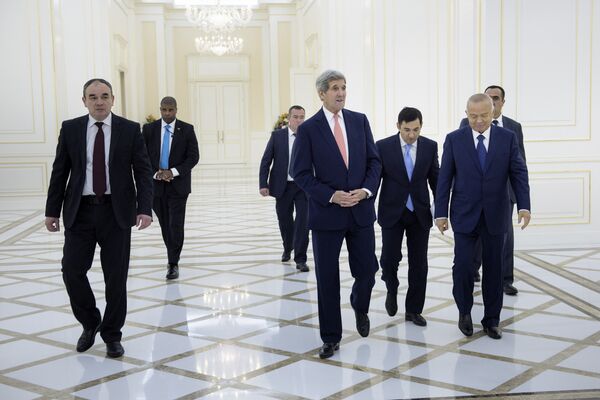
The logic, the analyst recalled, is that while Washington may be able to benefit by poking Russia in its 'soft southern underbelly' in the short-to-medium term, causing Moscow to focus more energy and resources on the stabilization of the region, the flip side of the coin is that Moscow and Beijing could combine to deal with these threats, thereby increasing their influence in the region in the long term, and, accordingly, crushing any American strategic plans in Central Asia.
"Therefore, the US may support the new authorities in Uzbekistan using soft power, in a bid to gain control over Tashkent. Under Karimov this was impossible. The first president did not forget or forgive Washington for Andijan," where the US sharply criticized the government's measures to quell the unrest.
Ultimately, "if the US chooses the quick and dirty variant, they will end up playing into the hands of Saudi Arabia, which is interested in a sharp and radical Islamization of Central Asia. Riyadh has already invested heavily in the construction of mosques and the education of the region's clergy, and plans to replace secular regimes in the area with Islamist ones."
"The Kingdom's motivations are clear; the idealists among them dream of a global Islamic caliphate, stretching from Morocco to Siberia; the realists, meanwhile, look at the region as a storehouse of resources (including nuclear), as a new front against Iran, and a means of blackmailing Russia. Fortunately, today they have too few resources to advance their program. And if Moscow, Beijing and Washington come to a consensus, Riyadh's plans to undermine the region will never be realized."

